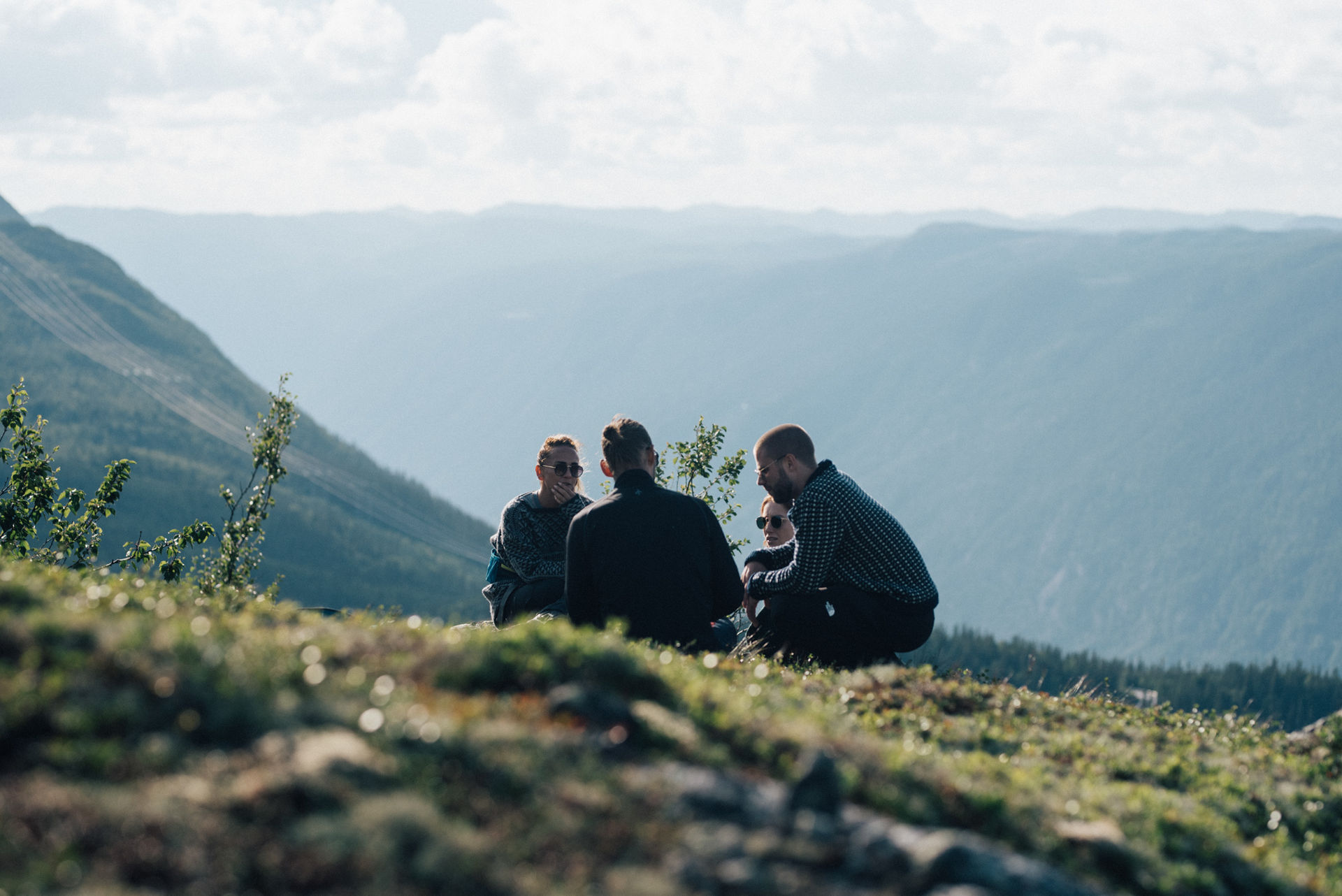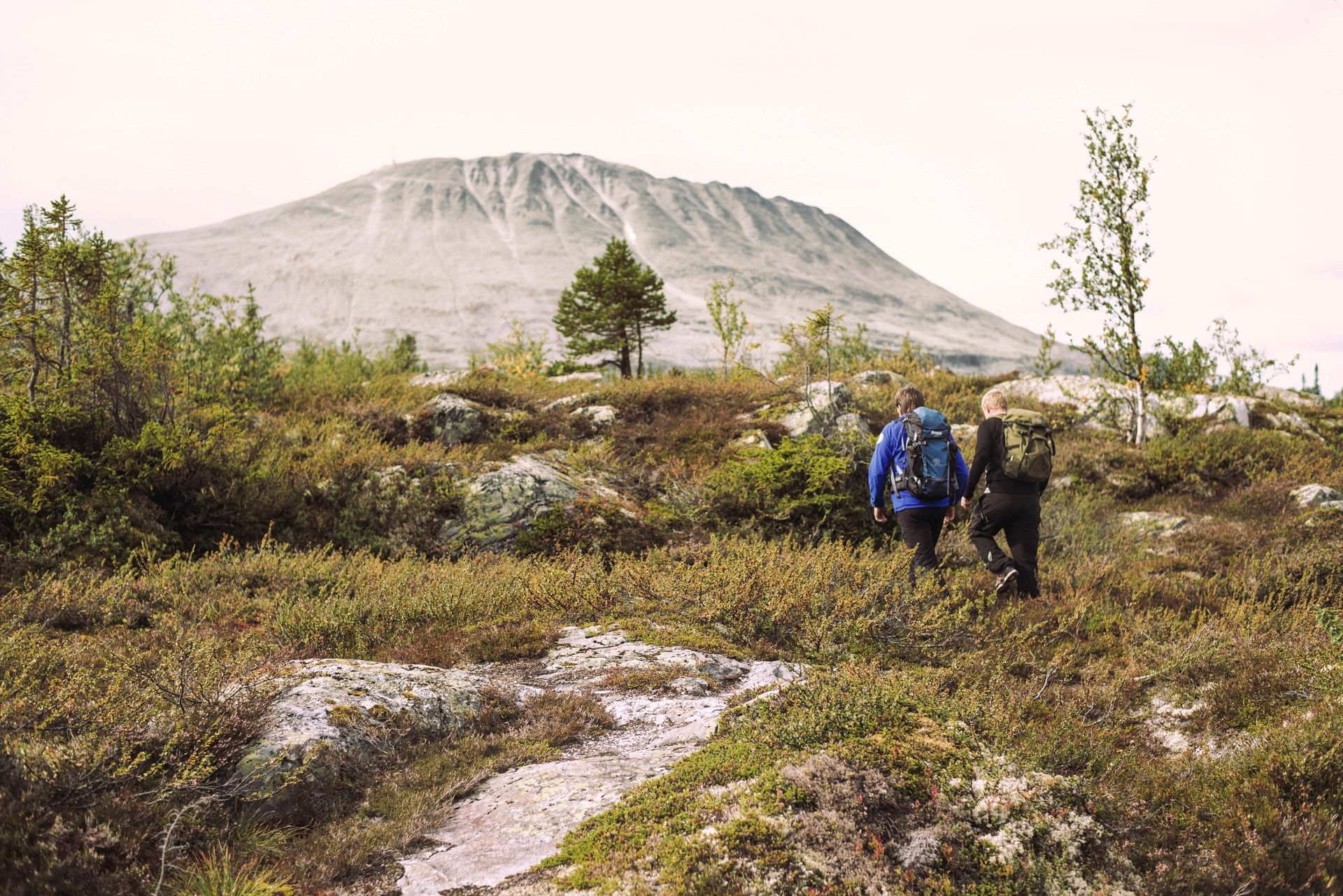
The right to roam in the Norwegian mountains
Allemannsretten (meaning "everyman's right") is a law that allows everyone to have access on uncultivated land in Norway. However, there are some things to keep in mind when staying out in the nature.
The right to roam in the Norwegian mountains
Allemannsretten (meaning "everyman's right") is a law that allows everyone to have access on uncultivated land in Norway. However, there are some things to keep in mind when staying out in the nature.
The right to roam in the Norwegian mountains
Allemannsretten (meaning "everyman's right") is a law that allows everyone to have access on uncultivated land in Norway. However, there are some things to keep in mind when staying out in the nature.
A few basic rules
Thanks to the right of public access we can walk, cycle, and ride freely in the countryside. However, when we do this there are a few things we should bear in mind
- It’s important not to damage forests or other sensitive lands.
- Be careful not to enter other people’s plots of land so that you don’t disturb the people who live in the area.
- Do not obstruct landowners in their business activities.
- When you walk, cycle, or ride in nature, there is a risk of damaging the land. Remember not to go over soft, easily damaged ground.

Gausta
The countryside around Gausta is spectacular, unique, and in many ways magical. Thanks to “Allemansretten”, the right of public access, we can really enjoy it. But it’s also our joint responsibility to be considerate of this privilege– so that we can preserve the magic.
Many people are unsure of the opportunities and obligations that come with the right to public access. Together we’ll sort out what it means.
The right of public access in brief
Essentially, this right means that you must be considerate of nature. Do not drop litter or cause any damage. In Norway, the right of public access always applies in open countryside, which means anywhere that is not built up or is not farmland or similar. The right of public access applies only in part to land with residential buildings.
Camping in the countryside
Sleeping under the stars or in tents in the countryside is fantastic. You can camp virtually anywhere in the mountains, with the exception of cultivated land and rest areas at the roadside. When you camp you must be at least 150 meters from the nearest inhabited house or cabin. This rule applies also to motorhomes and caravans.
In the lowlands, you may camp in the same place for up to two nights in a row. If you’d like to stay longer than two nights, you must ask the landowner for permission. In the highlands, i.e. the mountains, there’s no such restriction.
Lighting a fire in the countryside
In Norway, it’s prohibited to light fires in forests and the open countryside from 15 April to 15 September without permission from the municipality. You may, however, light a campfire where there’s clearly no chance of causing a fire.
This means, for example, where there’s snow on the ground, or if there’s been a lot of rainfall for a long period. If you’re not sure, contact the fire service. In extreme drought conditions, barbecues, gas burners, and camping stoves are forbidden. Find out about the risk of forest fires at yr.no.

Nature’s bounty
In Norway, you may pick berries, mushrooms, and wildflowers in the countryside. Some plants are protected, in which case they may not be picked. Also, do not break off twigs, branches, birch bark or other bark from growing trees as this can damage them.
To fish in Norway’s lakes, you must have permission from the owner – for example, in the form of a fishing permit.





